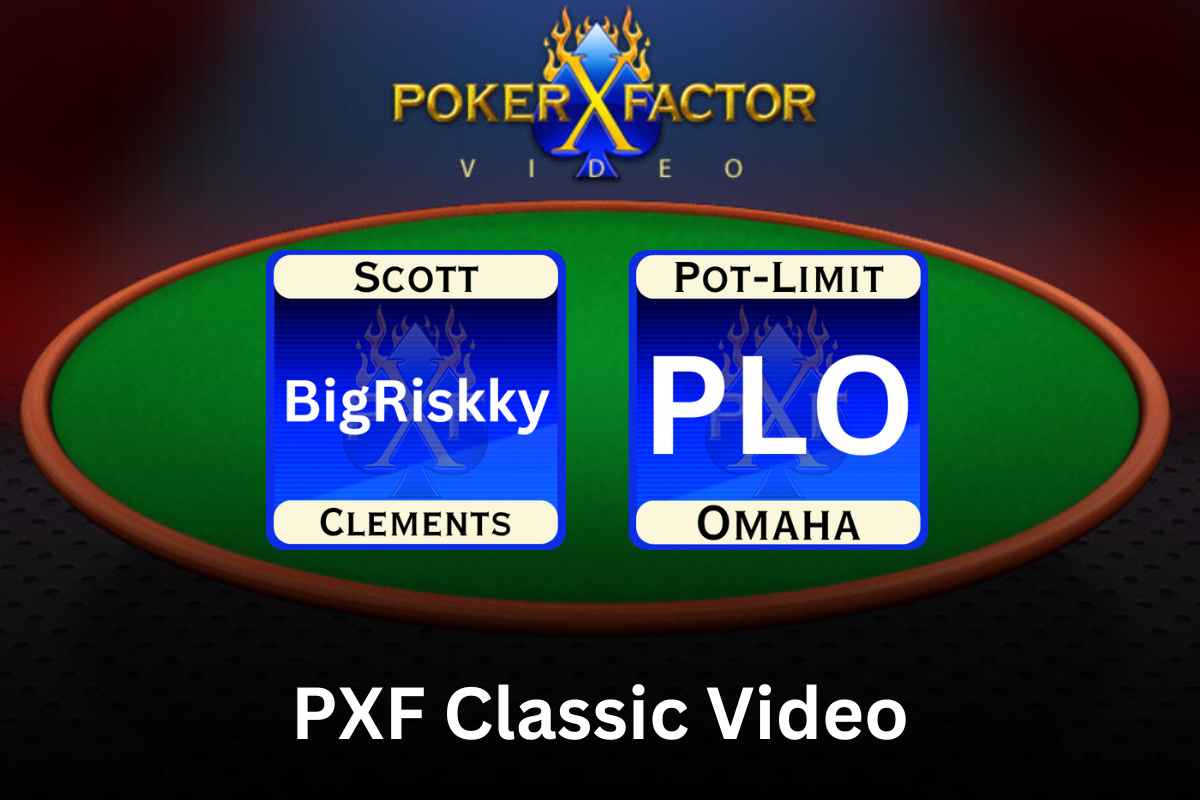PXF Classic Video: PXF pro Scott “BigRiskky” Clements narrates his FTOPS Pot Limit Omaha High 6-Max tournament in this four-part series.
In this series, Clements discusses PLO tournament strategy in detail, including:
- Selective Aggression: Clements employs a strategy of selective aggression, raising with strong hands but also being cautious not to over-commit when the hand’s potential is uncertain.
- Hand Strength Evaluation: He places a strong emphasis on evaluating the relative strength of his hand against possible opponent holdings, especially in situations involving potential high pairs like Aces or Kings.
- Opponent Analysis: Clements takes into account the playing styles and tendencies of his opponents, adjusting his strategy accordingly, particularly when facing professional players.
- Positional Awareness: He demonstrates a keen awareness of his position at the table and uses this to inform his decision-making process, being more conservative or aggressive as the situation dictates.
- Pot Control: The strategy includes controlling the size of the pot with hand strength and position in mind, avoiding over-inflating pots with medium-strength hands.
- Bluffing and Semi-Bluffing: Clements isn’t afraid to bluff or semi-bluff when the situation seems favorable, particularly when he senses weakness in his opponents or when board textures support his range.
- Value Betting and Slow Playing: He understands the importance of value betting when he has a strong hand but also slow plays at times to extract maximum value or to let opponents commit mistakes.
- Fold Equity and Hand Selection: There’s an evident understanding of fold equity and careful hand selection, particularly in pre-flop scenarios, where he avoids marginal hands that could lead to difficult post-flop decisions.
- Adaptability: Clements’ strategy is adaptable, shifting between aggressive and passive plays based on the dynamic of the table and the tendencies of his opponents.
- Calculating Odds and Outs: He is proficient in calculating the odds and outs, utilizing this knowledge to make informed decisions about when to call, raise, or fold.
- Risk Management: Clements’ approach includes managing risk, especially in tournament play where survival is key. He avoids unnecessary risks in marginal situations.
- Psychological Elements: There’s a focus on the psychological elements of the game, using bet sizing and timing to convey certain messages and to manipulate the perceptions of his opponents.
This strategy showcases a balance of aggression, calculated risk-taking, and psychological tactics, tailored to multi-table tournament play in Pot-Limit Omaha.

